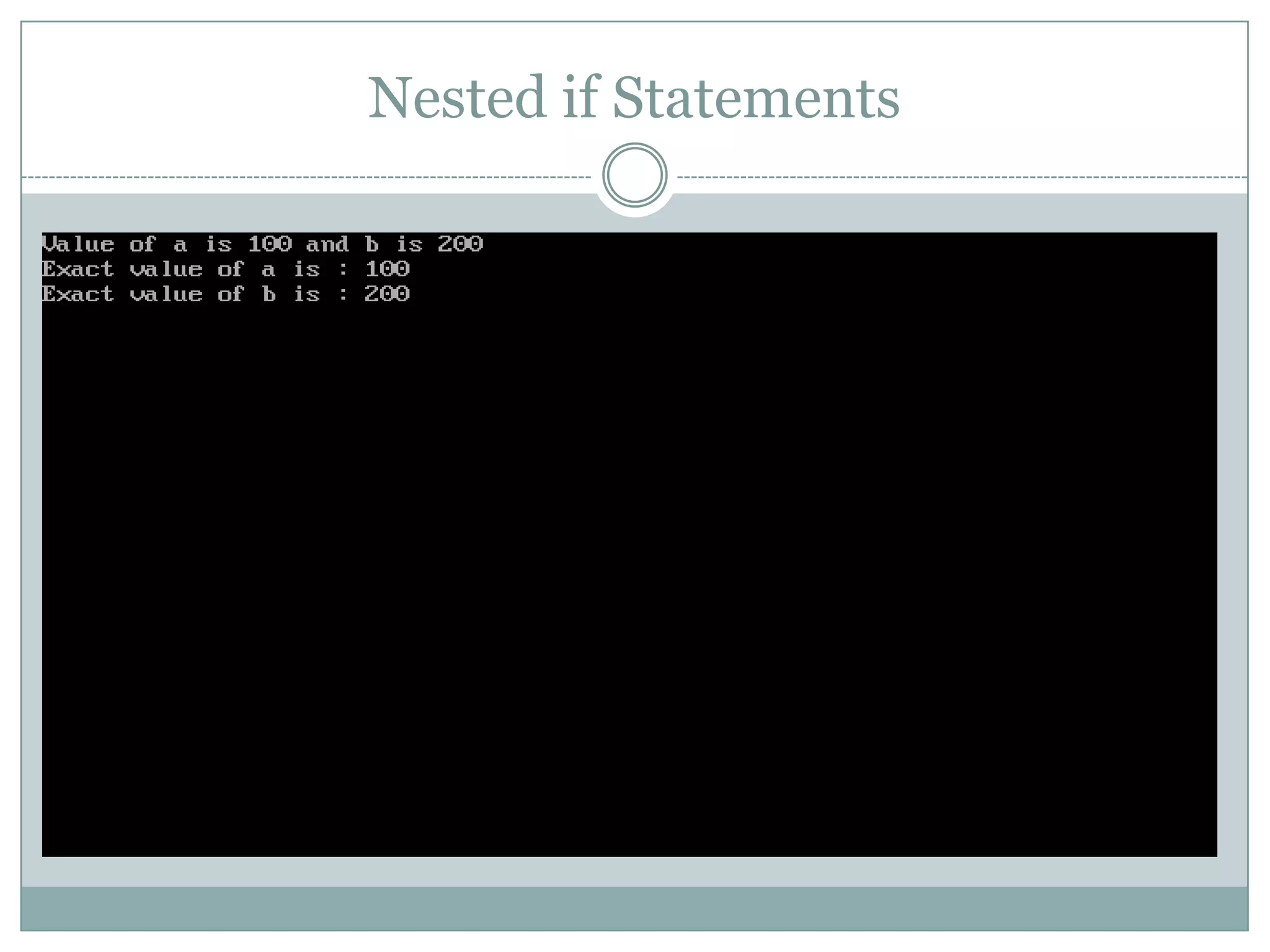The document discusses different types of selection statements in C programming including if statements, else if statements, nested if statements, switch statements, and nested switch statements. It provides the syntax and examples of how to use each type of statement to control program flow based on logical expressions that evaluate to true or false. The if statement and switch statement allow executing different blocks of code conditionally based on the result of logical expressions or comparisons.
































